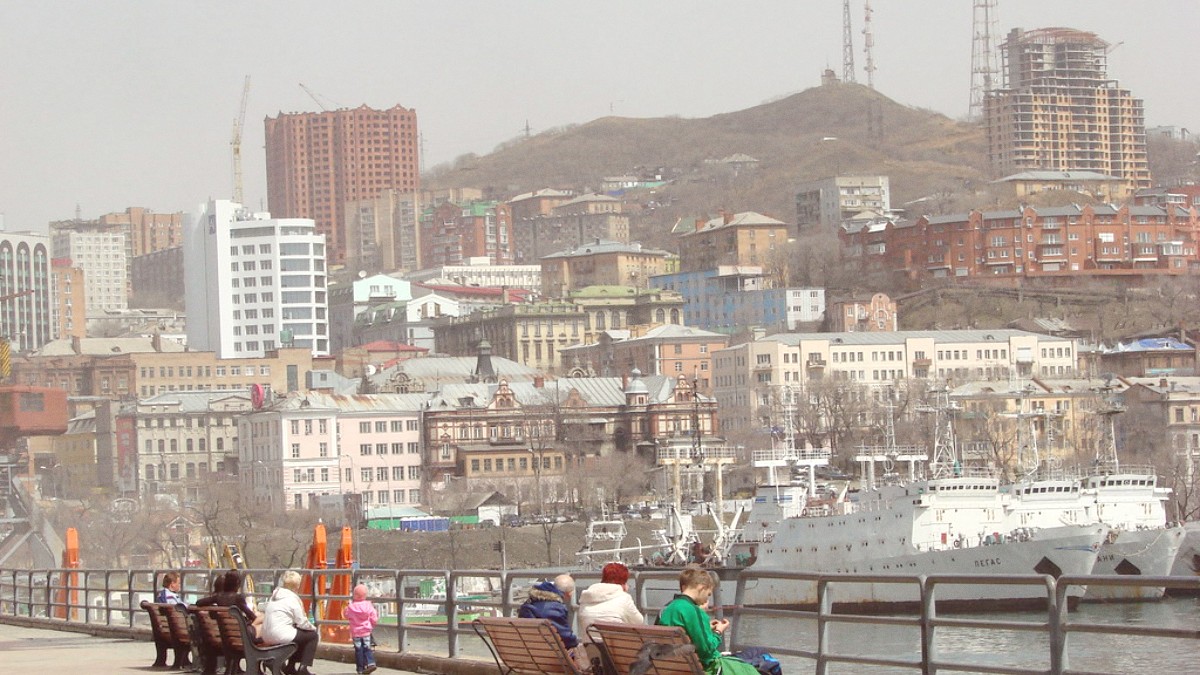
Russian Far East, Russia
Vladivostok experiences a humid continental climate, greatly influenced by the East Asian monsoon. This brings distinct seasons, each offering a different travel experience.
Winter (Dec-Feb) is cold and dry. Spring (Mar-May) offers gradual warming. Summer (Jun-Aug) is warm, humid, and wet. Autumn (Sep-Nov) brings mild, clear weather.
Late May to early October offers comfortable weather for city exploration. The Trans-Siberian Railway journey is available year-round. July and August are the only months warm enough for beach and boating activities.
Late spring (May) and early autumn (September) stand out for hiking. Winter sports are ideal in January and February.
Summer monsoon and typhoon remnants
July and August, heaviest rainfall
Localized flooding, transport delays
Clear air, good temperatures
Late May: fresh greenery
Early September: colorful foliage
Year-round journey
Green landscapes, warmer stops
Snow-covered scenes, cozy train travel
A valid visa is necessary for most foreign nationals, including U.S. Citizens, to enter Russia. The Tourist Visa is the most common for leisure visits. The process includes obtaining an Invitation Letter or through VisaHQ, completing an online application form, and gathering supporting documents. Submit your application to a Russian embassy, consulate, or visa application center. Apply well in advance of your travel dates.
A valid passport (six months validity beyond departure, two blank pages), the printed and signed visa application form, recent passport-sized photographs, Tourist Confirmation and Tourist Voucher from an authorized Russian tour operator or hotel, and a travel Insurance policy covering your entire stay, from providers like SafetyWing or Insubuy are required.
Fees vary by nationality and processing speed. Payment is due at application submission.
Present passport and visa. Obtain a Migration Card from border control and retain it for departure.
For stays over seven working days, your accommodation (hotel or host) registers your stay with migration authorities.
Standard tourist activities do not need special permits. Remote border areas or specific nature reserves may require advance permits.
No specific vaccinations are required for entry. Keep routine vaccinations current. Consult a travel doctor for additional recommendations like Hepatitis A/B or Tick-borne encephalitis (TBE) if planning outdoor activities.
Costs vary widely based on your travel style, from a backpacking journey to a more luxurious escape.
The official currency is the Russian Ruble (RUB, ₽). ATMs are widely available for cash withdrawals. Major banks offer currency exchange for USD and EUR.
Tipping is not mandatory but welcomed for good service.
Prices for various categories:
No specific vaccinations are required for entry to Russia (beyond routine childhood vaccinations).
Consult a travel doctor for personalized advice. Commonly recommended: Hepatitis A, Hepatitis B, Tick-borne encephalitis (TBE) if outdoors in wooded areas, Rabies (if extensive animal exposure), and routine vaccinations.
Risk in forested areas, especially April-June. Prevention includes vaccination, Long sleeves, long pants tucked into Socks, and Insect repellent with DEET or picaridin. Check for ticks after outdoor activities.
Always use caution with tap water.
Drink only Bottled water, commercially sealed beverages, or water that has been boiled or properly filtered (e.g., using a Portable water filter). Avoid drinking tap water. Maintain good hand hygiene with soap and water or Hand sanitizer, especially before meals.
Consume well-cooked, hot food. Exercise care with raw or undercooked items, unpeeled fruits, and vegetables washed with uncertain water. Established restaurants generally follow good hygiene.
Observe where locals eat; busy places often show freshness.
Available, but limited English-speaking staff and varying standards of care. For foreign visitors, private clinics often offer higher standards.
Be prepared to pay upfront. Keep receipts for travel insurance reimbursement.
Dial 112 from a mobile for general emergencies (police, fire, ambulance). Direct lines: 103 (Ambulance), 102 (Police), 101 (Fire).
Vladivostok is generally safe for tourists, with rare violent crime. Petty crime, like pickpocketing, may occur in crowded areas.
Comprehensive travel insurance is highly recommended. It needs to cover medical emergencies, medical evacuation, trip cancellation, and lost or stolen baggage.
Hospital stays, doctor visits, emergency treatment.
Emergency medical evacuation to a higher standard of care or home country.
Cancellation or early termination for unforeseen events.
General Emergency (mobile): 112
Ambulance: 103
Police: 102
Fire: 101
Keep your country's embassy/consulate contact details handy.